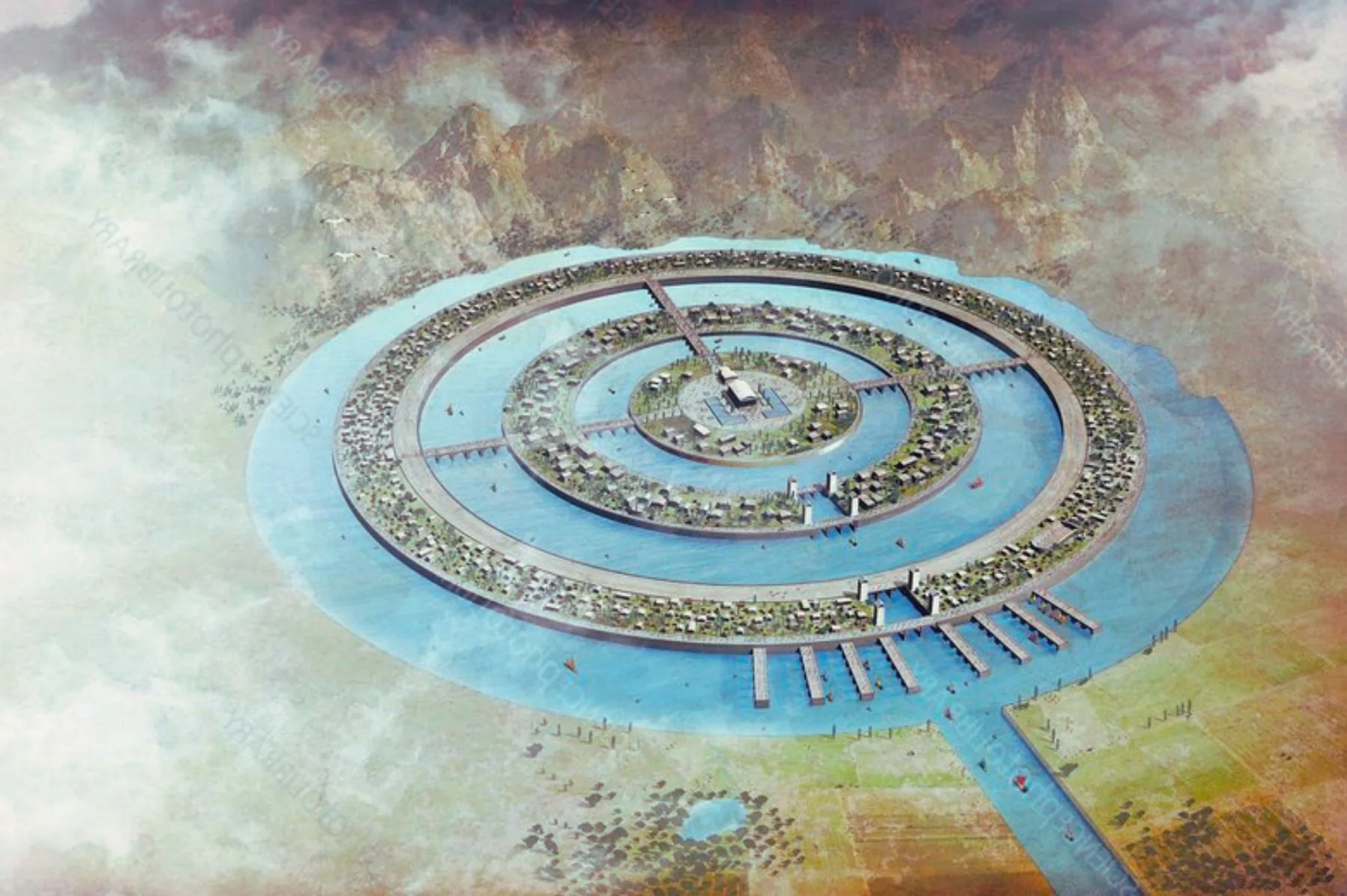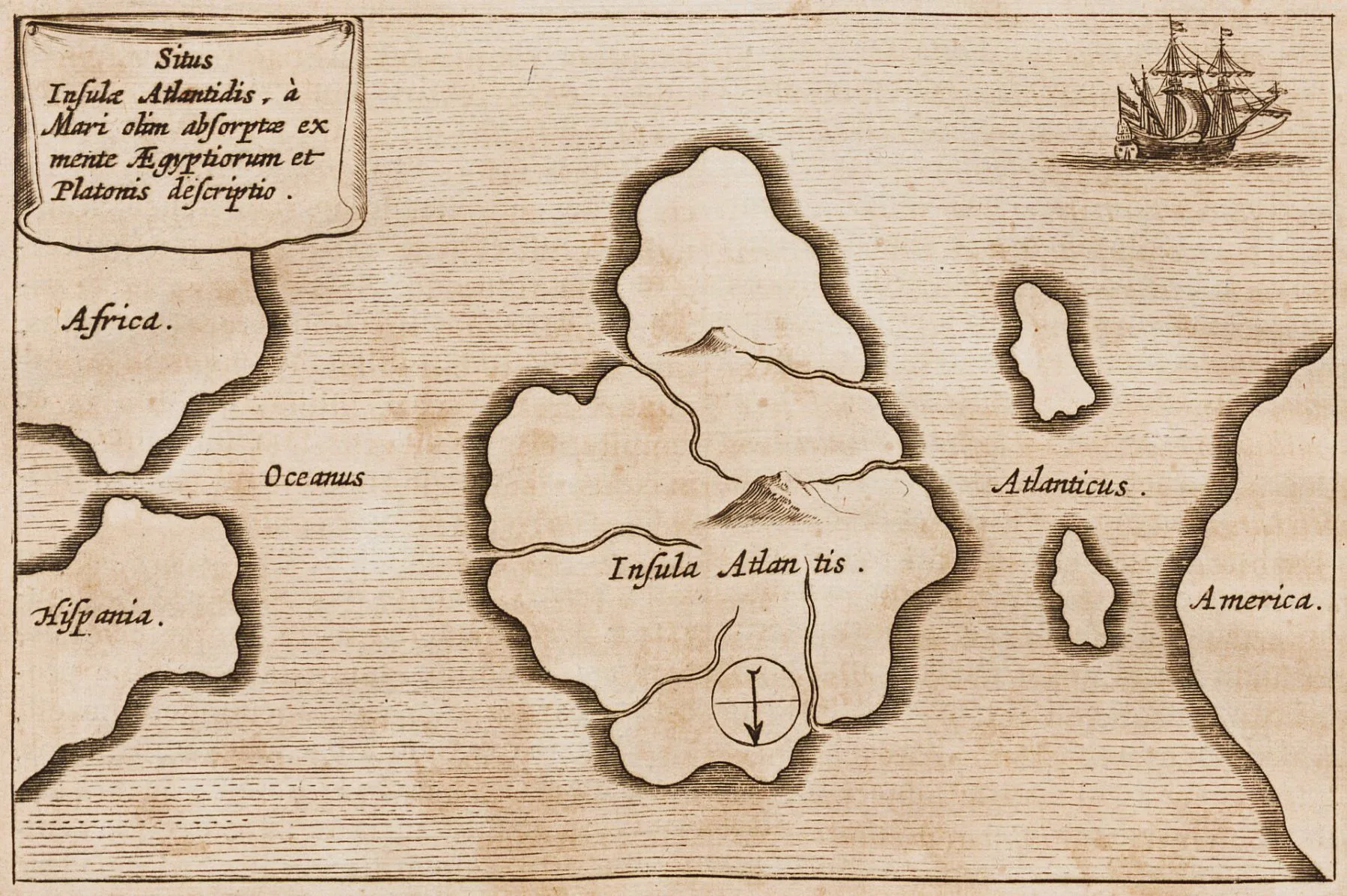The Lost City of Atlantis is one of the most persistent legends of western civilization. Atlantis, a legendary powerful and advanced civilization that mysteriously vanished under the ocean is described in dialogues Timaeus and Critias by the philosopher Plato. The legend of Atlantis was still interesting and challenging the minds of all people in spite of all the attempts to unveil the secrets of its presence once and forever. Did Atlantis really exist? Or is it just a myth, created to be just a warning about hubris and moral degradation? The secret was never solved; yet the fascination of Atlantis is undiminished.
The Origins of the Atlantis Myth
Atlantis was first printeded by the Greek author in the 4th century BC, Plato, who referred to it in his work as a vast, worldly-wise island on the other side of the Pillars of Hercules. The island was in itself a maritime state, and ruled over much of the known world. The narration in Timaeus starts with the character Critias recounting a legend of 9,000-year old Atlantean civilization. Atlanteans enjoyed a good reputation of prosperity, works, and waterways. But then, Critias of Plato adopts a darker direction by writing that their actions towards gaining dominance resulted in corruption and moral degeneration.
The Atlanteans took to greed and pride in desire to dominate ancient Greek world. To this effect, the gods are said to have brought the island down to the sea with one wreckage. With his fable, Plato arrives at a moralistic ending where he prophesizes that the god will punish those who grow too powerful and self-confident, which will result in devastating effects.
Is Atlantis fact or fiction
Whether it was a fictional allegory, or a real location, has been argued by many scholars since the time of Plato. The speculation is rampant because it has been a story handed down through generations and some shown faith that writings of Plato were not merely a myth but a historical event.
-
Allegory or Historical Record
A majority of historians and philosophers believe that the tale of the lost city as narrated by Plato was not a historical tale but a tale of morale. Myths were popular in the writings of Plato as a means to teach philosophy. According to some scholars, the story lost city is representative in the sense that it has been used to warn the rise of moral decay and the malfunctioning results of too much ambition and power. The abrupt drowning of the island can represent the collapse of huge civilizations as a result of their own inadequacies.
-
A Real City or Cultural Memory
Some have supposed that Atlantis might originally have been founded on a real spot but after a lapse of time the tale was disfigured. Others claim that the lost city was perhaps an ancient civilization that was overcome by a natural disaster, including volcanic eruption, earthquake, or tsunami. In this perspective, the story of Plato may represent a communal memory of actual disaster that happened many generations earlier and was mythologized.
As an example, a volcanic eruption of Santorini volcano (also called Thera) that occurred in circa, 1600 BCE could have given rise to the Atlantis legend. The eruption was unleashed with great destruction over the Aegean Sea and a terrible destruction of the island of Thera (located in present-day Santorini). No direct connection, however, exists between Santorini and the Plato Atlantis narrative.
Theories About the Location of Atlantis
Among the most lasting features of the Atlantis puzzle is its answer to where the city could have been positioned. Its probable location across the centuries has spawned dozens of theories, and many claim to have discovered the true Atlantis under the oceans. The most popular hypotheses include the following:
-
The Mediterranean Theories
Scholars believe that Atlantis could have existed in the Mediterranean Sea, and possibly Santorini where the Minoan civilization flourished following the eruption of Thera in 1600 BCE. Ancient writers have speculated whether Atlantis was in or near the Aegean Sea, off the coast of Crete, where the emergence and collapse of the Minoan civilization could have formed the new stuff behind the Atlantis narrative as preserved by Plato. The two theories suggest the influence of Minoan civilization on the myth.
-
The Caribbean and the Americas
A more common theory locates Atlantis in the Caribbean or the Americas. According to some scientists, the highly complex society outlined by Plato might have been found in the Bahamas or the Bermuda Triangle or even Central America. The investigation of ancient ruins (such as in Cuba, or the Bimini Road, an underwater roadway in the Bahamas) contributes to this notion. According to the scholars who believe in this theory, such ruins might belong to a once great civilization that was washed away by the sea.
-
The Antarctic Theory
The theory that Atlantis was in Antarctica is one of the less common and most controversial ones. This theory assumes that the continent had once been a habitable earth that melted under ice since the climatic conditions or position of the earth changed. Others refer to old maps which do apparently suggest the existence of a continent in the South Pole, but which are dismissed by mainstream science.
Modern Investigations and Discoveries
Several underwater expeditions have explored the Mediterranean Sea, Caribbean Sea and Indian Ocean for signs of an ancient city. Although there is no clear evidence, the finds of ancient ruins, submerged cities and underwater mysteries attract the attention of researchers. The ancient city of Dwarka, submerged off Gujarat coast, is suggested as a possible candidate for Atlantis due to its ancient ruins dating back thousands of years. The Bimini Road, a series of underwater stone formations near the Bahamas, is also a topic of interest.
Atlantis in Popular Culture
Atlantis has an unforgettable print in popular culture. Numerous books, movies, television shows, and games have been based on it. Atlantis is depicted as a utopian technologically and knowledgeable society, such as in Atlantis: The Lost Empire by Disney as well as literature like The Atlantis Gene by A.G. Riddle. The concept of a lost, technologically advanced civilisation which possesses the secrets to the forgotten history of man still fascinates and relentlessly triggers the imagination.
Conclusion
Whatever the reason of Atlantis, whether it was a fact or a metaphor, its account remains fascinating to the world. The mystery of Atlantis still prevails through the first remarks made in the dialogues of Plato to the current expedition and the discoveries. The concept of a civilization ahead of our time and lost to nature and time, touches both our own fears and dreams. Until the questions are answered, Atlantis will always be one of the most tantalizing and elusive mysteries in history an enigma that may never have all its problems cleared up but will never fade.












0 Comments